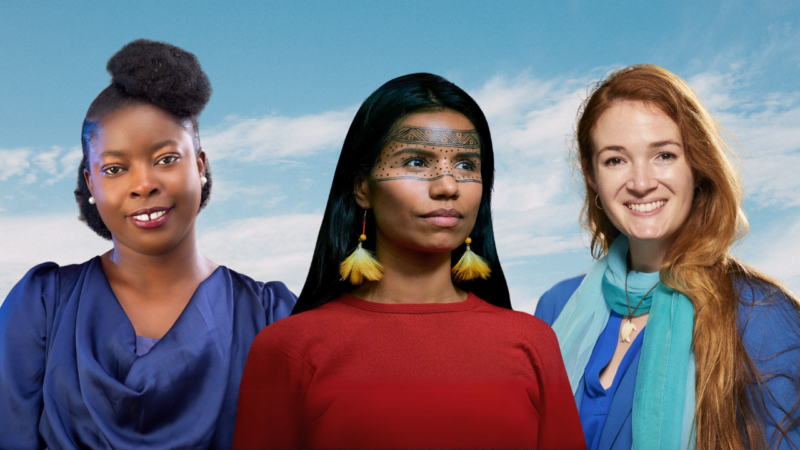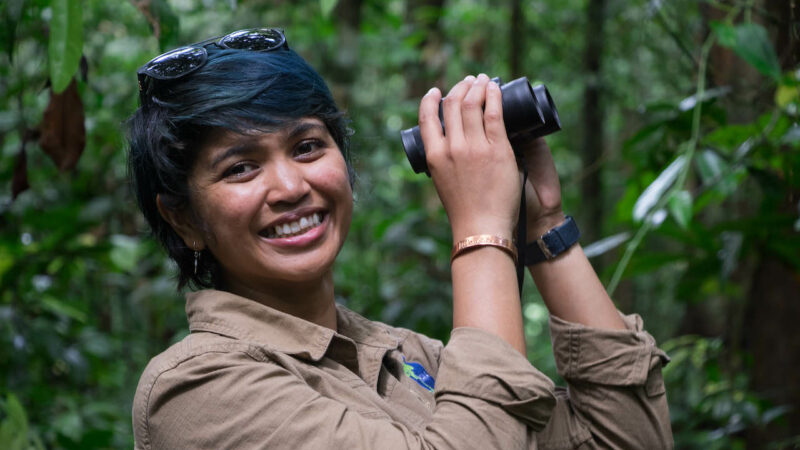
Farwiza Farhan is an environmental activist and one of the leading voices in the fight to protect the Leuser ecosystem in Sumatra, Indonesia. Farhan focuses on ground-level species protection and high-level legal advocacy. Her strength is in fostering collaboration; she built a grassroots movement that succeeded in advocating for law enforcement against companies operating illegally and launched a citizen lawsuit that empowers local communities to have meaningful involvement in policymaking. She drives change from the ground up.
Farhan is the leader of Forest, Nature & Environment Aceh (HAkA) a homegrown Acehnese NGO, which is striving to protect the Leuser Ecosystem in Sumatra. By empowering communities, taking legal action, and mobilizing local, national and global campaigns, Farhan and her team are helping to pave the way for true sustainable development for their people. Her impact on community-driven conservation was recognized with the 2016 Whitley Award.
The Leuser Ecosystem is the last place in the world where several of the key Sundaland mega-fauna species can still be found together: the tiger, orangutan, elephant, and rhino. Motivated by her passion to protect critically endangered species under extreme threat in this area, Farhan helped launch a legal case against a plantation concessionaire inside the Leuser Ecosystem. Eventually, the legal case ended in a victory for conservation, and the concessionaire was fined a precedent-setting USD 26 million.
Focusing on the core habitat for critically endangered mega-fauna, Farhan focuses on ground-level species protection on the one hand and high-level legal advocacy on the other. This means she deploys a new Wildlife Protection Team to destroy snares and intercept poachers, a mobile monitoring unit to track wildlife and forest crime, and a special law enforcement operation to increase prosecution rates.
Recently, she has mobilized community leaders to conduct a civil lawsuit seeking to revoke the Aceh Spatial Plan that would otherwise legitimize the building of roads, hydropower schemes, oil palm concessions, and new settlements inside the Leuser Ecosystem. If these plans are implemented, despite lack of approval by the central government, the charismatic species that make it unique will vanish and the Leuser Ecosystem would eventually be destroyed. Most conservationists, considering the challenges to be too great, do not wish to address the threats mentioned above. Farhan, however, has always understood that a holistic approach to conservation is the most viable path to success.



